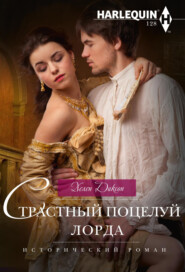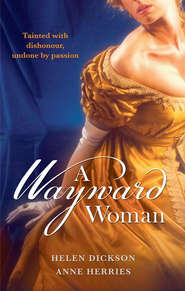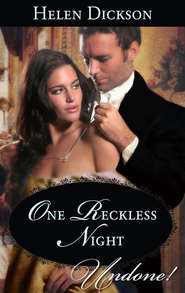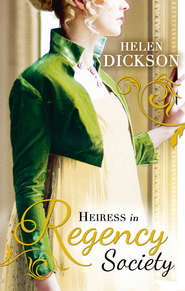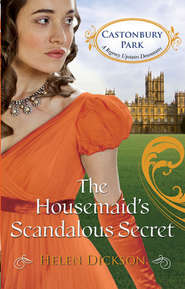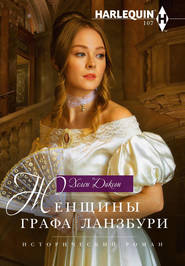По всем вопросам обращайтесь на: info@litportal.ru
(©) 2003-2025.
✖
Caught in Scandal's Storm
Настройки чтения
Размер шрифта
Высота строк
Поля
What Duncan Forbes hadn’t told Alice was that he had fallen on hard times. He had given little thought to Iain Frobisher since the day he’d jumped into the Thames, until he’d met a man in London recently who bore an uncanny resemblance to his companion on the hulk. His suspicions were proved correct, and after spending a short time reminiscing, the two men had gone their separate ways. But on reading a small clip in the papers about Alice Frobisher’s fall from grace in Paris, and learning that she had come to London to reside with Lady Marchington, he realised the information he had acquired could be turned to his advantage. He had sent a note to Marchington House addressed to Alice Frobisher, stating that he had information concerning her father she might find interesting.
Having whetted her appetite and seeing that she was desperate to know more, he had told her to meet him at the same time and place the following day. Alice had agreed, by which time she would have acquired the money to pay him what he asked for the information.
‘No, of course not,’ Alice lied in answer to Roberta’s question. She handed her snow-clad cloak to a waiting footman, who was not at all pleased to have water dripping all over his buckled shoes. ‘I’ll go to Lady Marchington as soon as I’ve changed my gown. The hem is quite sodden. See,’ she said, kicking a booted foot out in front of her to prove her point.
‘I think she wants to see you now.’
Alice threw Roberta an exasperated look. ‘Really, Roberta, unlike you I do not feel that I always have to do your aunt’s bidding. If I were you, I’d stand up for myself. No one would blame you.’
Roberta smiled tolerantly. She did not possess a strong will of her own and often allowed herself to be browbeaten into compliance by her Aunt Margaret. It was easier that way. ‘Aunt Margaret has been very good to me—to both of us, Alice. If it hadn’t been for her, I would have been sent to live with strangers. I could not have borne that. Aunt Margaret has done a lot for me.’
Roberta had the misfortune to be an orphan, but it was fortunate for her that she possessed as her sole relative and guardian the Countess of Marchington, Lady Margaret Hislop, a widow these ten years past and without offspring. Roberta had long ago become submerged in the strong waters of her aunt’s personality, for Lady Marchington was an autocratic, domineering woman who employed outspokenness to the point of rudeness as a form of social power and was feared and deferred to in consequence.
She had an eye that could bore holes through granite and a tongue that could flay the hide off a rhinoceros. It was pretty unnerving to those who found themselves in close proximity to the formidable lady. Roberta submitted herself to Lady Marchington’s authority without complaint. Strong men withered before her and women ran for cover. She was a highly colourful character, tall and slender with iron-grey hair and a face wrinkled with age, but it was said she used to be a raving beauty when she was a girl.
Alice was not afraid of her, but then she always took care to avoid her. ‘Oh, well,’ she said, heading for the stairs with Roberta following on behind her, ‘as long as you feel like that about it. What do you suppose the party will be like tonight? The whole of London is anticipating the announcement of your betrothal. Indeed, they can talk of little else. I doubt the bad weather will prevent those invited from attending.’
‘I sincerely hope not, but we will just have to wait and see.’
‘I am certain the evening will be a tremendous success.’ Alice cast Roberta an amused, knowing glance. ‘Knowing how enamoured he is of you, Roberta, you can be assured of Hugh’s company all night. The manner in which you become quite flustered when you are with him tells me that his attentions are not unwelcome. Come, do not deny it. It is forever Hugh this and Hugh that,’ she gently teased her friend, who had turned as red as a poppy when Alice pointed out this slowly growing obsession.
Roberta’s china-blue eyes never left Alice’s face, the soft brown ringlets demurely hiding her rosy dimpled cheeks. She was quite tall and slender and cast in a gentler mould than Alice. It was not just that, Alice mused bitterly. What she lacked and what Roberta had in abundance was a tender innocence to add to her sweet beauty.
‘You’re quite right, Alice,’ Roberta said, warming to her subject despite her strongest wish to be sensible. ‘It’s an exciting feeling. When I see Hugh I always feel so happy. I—I do love him, Alice.’
Alice smiled at her. She did not begrudge Roberta her happiness, but she did envy her and wished with all her heart that she could have found the same kind of happiness in her betrothal to Philippe. ‘That you cannot deny and very soon you will be his wife.’ When Roberta and Hugh were together, mostly they talked. Occasionally they touched each other’s hands, tentatively, the lightest of movements before making a shy retreat. Marriage would be a steady arrangement which Roberta would be content with and Hugh would have an absolute single-minded devotion for her. How Alice envied her friend these feelings. Let her not be disappointed as she had been.
‘I confess that I cannot wait,’ Roberta softly replied.
‘Although what will happen when Hugh discovers you were once betrothed to another—may still be betrothed to him since the engagement was never broken—is anyone’s guess.’
The light vanished from Roberta’s eyes at Alice’s mention of Ewen Tremain. ‘Aunt Margaret says Lord Tremain no longer counts. He pledged his troth to me in Paris. But where is he now? He left over a year ago after being summoned to his brother’s home in Bordeaux on a family matter and there has been no word from him since. Living close to Paris, did you never meet Lord Tremain?’
Alice shook her head. ‘I know of him. His brother Simon fought alongside my father and brothers at Culloden.’
‘I recall you telling me that your brothers did not survive the battle.’
‘Sadly, no. Two of them were killed. William was too young to fight. I have no memories of my older brothers. I was just a baby at the time. My mother died soon after we went to live in France. Now there is just William—and me, of course.’
‘Aunt Margaret has written to Lord Tremain on numerous occasions, without the slightest result. He could not have done more to earn her displeasure. He is deserving of her contempt, and mine. It would seem I’ve been fortunate to escape marriage with a man who is unworthy. In fact, I think Lord Tremain is the only man who has ever snubbed Aunt Margaret firmly—and, she says, with intention. I have to say that it’s a salutary experience for her. Which is why she has relegated Lord Tremain to the past.’
And which was why, Alice mused, Lady Marchington was giving a ball tonight to display Roberta like a costly gem to be admired, a diamond to be destined for a coronet, no less. Lady Marchington was the matchmaker, the woman who would marry her niece to the most eligible bachelor in London. She had thought of nothing else since Lord Tremain had left Roberta in Paris. Lady Marchington was fearfully strong willed and quite ruthless about getting her own way.
‘I do recall you saying how relieved you were when he left Paris. You had an aversion to him, I believe.’
‘Not an aversion exactly,’ Roberta answered, raising her skirts and having to hurry to keep up with Alice as she climbed the stairs.
‘Does he still trouble you?’
‘On occasion. We were not well acquainted, but on the few times we met he was always polite and considerate towards me. He was a man to stir a female’s heart—quite dashing—handsome, too. But he was a mysterious man—secretive—sinister even, I often thought.’
Alice had become very fond of Roberta. She was angry at the treatment her friend had received from Lord Tremain and was persuaded that he was unworthy of Roberta’s devotion. She was determined to remain just as sensitive to Lady Marchington’s motives of ridding Roberta of that erstwhile suitor, yet if Lord Tremain was as handsome as Roberta would have her believe, then one would assume he had made quite an impression on her. The loss of such a magnificent suitor would have made any woman resentful of an aunt who was determined on his removal from her life. Alice was of the opinion that, if for no other purpose than to make Roberta happy, Lady Marchington had been justified.
‘But what of you?’ Roberta asked. ‘I would not ask, Alice, but I fear I must. I’m so glad your brother sent you to live with my aunt and me, but you must miss Paris.’
Alice drew up her slender shoulders in a small, distressed shrug, not wishing to recall the events that had made her leave her brother’s house, the shame she had brought on William’s good name. Now that she was in England, she was keenly aware that her memory of those weeks was best put behind her for the sake of her own peace and well-being. ‘It wasn’t Paris I had an aversion to, Roberta, only the man I was supposed to marry.’
‘You jilted him. But if you did not love him, then you have nothing to reproach yourself for.’
Despite Roberta’s charitable words, Alice realised she was still feeling the effects of the nightmare of what she had done. A fleeting frown touched her smooth visage as a memory stirred in her mind of the self-satisfied smirk Philippe had worn that first time he had taken her to bed. It was almost as if she had become a possession he could flaunt to lord it over others. The day had come when she had told him she would not marry him and walked away. She had never loved him and had soon come to despise him, so she knew he could not break her heart.
William’s wrath had been terrible at first. ‘How could you?’ he had berated. ‘Have you no shame? No remorse? You’re a disgrace to this family and especially to the memory of our dear mother.’
Alice had closed her ears at that point. She wished he hadn’t mentioned their mother. That had been unfair of him. Alice couldn’t really remember her—she had been just four years old when she died of a weakness of the lungs. All she knew of her was what she had gleaned from William and she had taken his memories to herself. She might not have known her mother long, but she felt sure she would have listened to Alice, that she would have understood and taken her side.
But when William’s wrath had subsided, for the first time Alice had seen sadness rather than anger. ‘What happened to you would be shocking and tragic even if no one in the world knew of it but me,’ he had said. Alice saw that her brother was sincere in this and the realisation had thrown her off balance. It was true that William’s pride was wounded, but that was not all. He genuinely feared for her welfare. Alice was sorry she had hurt him, which had added to her disgrace.
And then London. She was sent to London to live with Lady Marchington and to learn some wifely skills and, presumably, the sense that her brother set such store by. She had told herself it was for the best. She had to trust William to have her best interests at heart. On saying farewell, he had looked mortally wounded. Alice had felt regret like a sudden pain. It gave her no satisfaction to see her brother’s distress. But then his expression had changed. ‘Don’t worry,’ he had said. ‘The matter will be dealt with. I’ll take care of everything.’ There had been a hardness in his voice that had made her uneasy. But, encased in her own misery, she had thought no more about it.
It was when she had been in London for two weeks and received a letter from William’s wife that she realised there was a side to William she did not know. She shuddered, not wishing to dwell on the contents of that letter just now—of how her brother, defending her honour, had fought a duel to the death with Philippe. She kept the guilt and shame locked away, and there it would remain until, coward that she was, she could face what had happened.
‘I suppose there are many who would say running away never solved anything,’ Roberta said, breaking into Alice’s reverie.
‘It is a fresh start, Roberta.’
‘A happy one, I hope. Whatever people say I, for one, am glad you’re here. So now I insist that you forget all about him and begin by enjoying my betrothal party.’
Alice no longer lived in dread of seeing Philippe again, but nor was she able to relax. She was suspended in a past for which she felt a deep shame and hated to think about, and a future she could not bear to contemplate.
Although she had not been raped by Philippe it had still been an assault—she had been so young and innocent, and what he had done had had life-changing repercussions. She was no longer the happy, carefree girl she once was and she mourned the loss of her innocence. Her heart had been badly damaged and she felt so tainted that she had lost her faith in love. Romantic love was just a silly dream. Feeling insecure in herself, she did not feel capable of having a successful relationship after all that she had endured, nor did she imagine that she could ever be truly happy again, or make someone else happy.
With Roberta hard on her heels Alice hurried along the landing and passed through her chamber doors. She began to unfasten her dress. ‘I’m surprised Lady Marchington agreed to allow me across her threshold—although I suppose William’s wife being the daughter of her closest friend had something to do with that.’ What she said was perfectly true. Lady Marchington had taken her in as a favour to William’s wife, Anne, but also to act as companion to Roberta. Alice was in no doubt that as soon as Roberta wed Viscount Pemberton, Lady Marchington would lose no time in securing a match for her. Although, she thought bitterly, she could not hope for as fine a catch as Roberta. Anyone would do as long as Lady Marchington got her off her hands.
Seeing her fingers struggling with the buttons, Roberta went to her. ‘Here, let me.’ After a moment she asked, ‘What was he like—Philippe? Was he handsome?’
Alice’s gaze hardened as her heart had hardened when she had decided not to marry him. ‘Oh, yes, he was handsome. It was a matter of fact rather than opinion. But it was his handsome looks that annoyed me. They added to his air of arrogance and his self-belief. Confidence was not lacking in that particular male either. It never occurred to him that he would not get what he wanted.’
Roberta helped her off with her gown and draped it over a chair for Alice’s maid to attend to later. ‘But he must have attracted you for you to agree to marry him.’
‘Perhaps a little—in the beginning. Philippe Duplay, the Comte de St Antoine, was the kind of man women dream of—a man to whisper words like little pearls into their ear. Weak men would give their souls to be like him, to be as tall and fair as him, to possess those laughing blue eyes—witty and gay—and to ride and dance like him. But strip away those pretty words and fine titles, and what is left? Arrogance, a blackguard—a roué, a gamester.’ She spoke with such bitterness that Roberta looked at her with a questioning eye.
‘You speak of him as if he were dead, Alice.’
Alice stiffened and looked at her hard. ‘He is, Roberta. Philippe is dead. And now, if you don’t mind, I do not wish to discuss him further.’
Turning away from the shocked expression her revelation had caused, Alice moved to the window and watched the snowflakes flutter down. Roberta disappeared into her dressing room to compose her thoughts and to select a suitable gown to wear for her meeting with Lady Marchington.
Alice thought of William, with whom she had lived for most of her life in a village close to Paris. When she had reached eighteen, William had only one ambition and that was for his sister to marry—and to marry well. William was wealthy in his own right and would offer a substantial dowry. Suitors came and went, leaving Alice feeling like an animal at the local market. It was finally decided that she would wed Philippe Duplay, Comte de St Antoine, who had long been enamoured of her.






